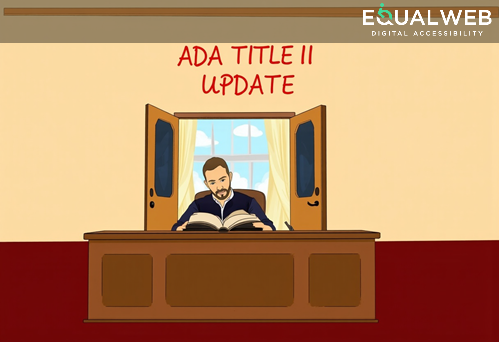The Accessible Canada Act (Bill C-81)
The
Accessible Canada Act (ACA) is a code of regulations enacted in order to ensure a “barrier-free” Canada and applies to all territories under federal jurisdiction.
Compliance with ACA
Also known as
Bill C-81, the legislation applies to all government and private bodies. However, the bill mentions January 1, 2040, as the final date for compliance. Nevertheless, the ACA does apply in federal jurisdictions that are comprised of three groups: (1) Government entities such as the Government of Canada, the Canadian Forces, and Parliament; (2) Crown corporations—companies that are owned by the state but operate administratively as private businesses; and (3) The federally regulated private sector, such as the banking, transportation and telecommunications sectors.
The ACA has yet to establish specific compliance standards, but conforming to WCAG 2.0 Level AA standards would cover most accessibility-related regulations.
For more details, visit our
ACA compliance page.
Accessibility for Ontarians with Disabilities Act (AODA)
AODA stands for the Accessibility for Ontarians with Disabilities Act (AODA) and applies to “every person or organization in the public and private sectors of the Province of Ontario.”
The bill specifically notes WCAG 2.0 Level AA as the web accessibility conformance standard for the Government of Ontario and the Legislative Assembly, as well as “public sector organizations and large organizations.”
Penalties for noncompliance can be relatively excessive, with maximum fines from CA$50,000 to CA$100,000 for every day of an AODA violation.
For full details of the legislation, compliance exemptions, and more, go to our
AODA compliance page.
Accessibility for Manitobans Act (AMA)
The
Accessibility for Manitobans Act (AMA) enacted into law in 2013 focuses on five fields of accessibility: (1) Customer Service Accessibility Standard; (2) Employment Accessibility Standard; (3) Information and Communications Accessibility Standard; (4) Built Environment; and (5) Transportation. Web accessibility is subject to the Information and Communications Accessibility Standard, and although it does not stipulate specific accessibility standards, it does explicitly mention small print size, low color text and background contrast, and clear or plain use of language as web accessibility requirements.
The legislation mostly deals with remediation for employees and applicants but is expected to catch up with the Web Content Accessibility Guidelines (WCAG) and AODA standards in the near future.
EqualWeb can make your website and mobile app accessible to people with disabilities, including the entire digital hiring process.
Contact us to find out more if you need assistance and/or consultation.
Quebec`s Act to Secure Handicapped Persons in the Exercise of their Rights with a View to Achieving Social, School and Workplace Integration
This bill, the oldest disability-related in the Canadian provinces, is restricted to government and public agencies. Although it does not clarify deadlines and the goals for meeting web accessibility compliance, it does specify WCAG 2.0 as the required standard to which the agencies must adhere.
Nova Scotia Accessibility Act
Web accessibility in Nova Scotia must adhere to the WCAG 2.0 Level AA standard. However, the standard was not yet enacted into law. The province’s government is remediating its websites in line with WCAG 2.0 and is expected to require private organizations to comply with the same standard as well, following in the footsteps of Ontario and its
AODA legislation.
Accessible British Columbia Act (Bill 6)
British Colombia has yet to enact web accessibility laws but has introduced Bill 6 to the legislative process, which will likely come into force by the end of 2022. If followed through, it would grant the provincial government the authority to regulate accessibility standards, moving in the direction of a barrier-free society.
Jun 09, 2022




